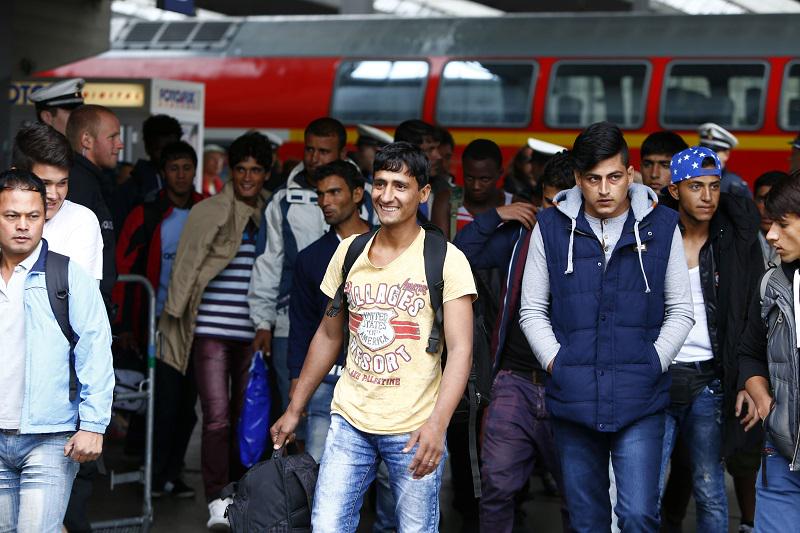Posted: 13 Sep 2015 04:04 PM PDT

Austrian train operator OeBB says Germany has stopped all trains coming in from the country, and Germany's Interior Ministry has abruptly introduced "temporary" border controls with Austria. More than 2,100 extra police have been dispatched to secure the borders.
Austria's national train company OeBB also announced earlier that it is suspending services to and from Hungary, which is where most asylum seekers arrive from, on their way to Germany. It was unclear if smaller operators would follow suit.
Germany's Interior Minister Thomas de Maiziere has announced that the country is immediately introducing border controls, following an internal vote between the country’s ruling coalition partners.
“At this moment Germany is temporarily introducing border controls again along [the EU’s] internal borders. The focus will be on the border to Austria at first,” the politician said at a news conference in Berlin.
“The aim of these measures is to limit the current inflows to Germany and to return to orderly procedures when people enter the country.”
De Maziere called for asylum seekers to “abide by the rules” and register in the first country of arrival in the EU, and said they could not “pick and choose” where to live in Europe. Many have refused to identify themselves in transit countries, demanding passage to Germany, which accepts a higher proportion of applications than other EU countries, and has more generous welfare benefits.
According to the Berlin tabloid Bild, and Austria's leading newspaper Krone, German border police will examine the travel documents of those arriving through the most popular southern route into the country, to make sure they are on the list of countries eligible for asylum.
While the plurality of more than 800,000 expected to apply for asylum in Germany this year are from Syria, a significant minority originate from Balkan states, some of which, such as Albania and Kosovo, have been designated as "safe" – meaning the applications are likely to fail.
The new procedure would be a blow to the Schengen agreement, which enshrines the right of free movement across the borders of its EU signatories.
European Commission President Jean-Claude Juncker has said that Germany extraordinary measures fall "within crisis rules" of the agreement, but urged a return to open borders as soon as is practical, citing widespread support for Schengen from European leaders he has spoken to.
Munich, the entry point for most asylum seekers, has been overwhelmed, with over 13,000 arriving on Saturday alone, and more than 3,000 on Sunday morning.
“We have reached the upper limit of our capacity,” police said in a statement.
Munich's mayor, Dieter Reiter, said the city was already up to 5,000 places short of capacity for the newcomers, forcing many of the asylum seekers to sleep at the overcrowded Central railway station. The city administration said it might be forced to temporarily house the refugees in Olympiahalle, an indoor sports facility and concert arena, which is currently undergoing renovation.
While Berlin has led a reluctant EU in opening its doors to refugees, on Sunday economy minister Sigmar Gabriel admitted that "the European lack of action in the refugee crisis is now pushing even Germany to the limit of its ability."
He told Der Tagesspiegel newspaper that “it’s not so much the number of refugees as the speed at which they’re arriving that’s making it so difficult for the states and the municipalities to cope.”
Hungary's nationalist prime minister Viktor Orban expressed "solidarity" with Germany's decision, saying to Bild that it would help "safeguard German and European values." Orban did warn that the step would be meaningless unless the borders of Greece, the first EU port of call for many migrants, would also be sealed from the influx.
Source

No comments:
Post a Comment